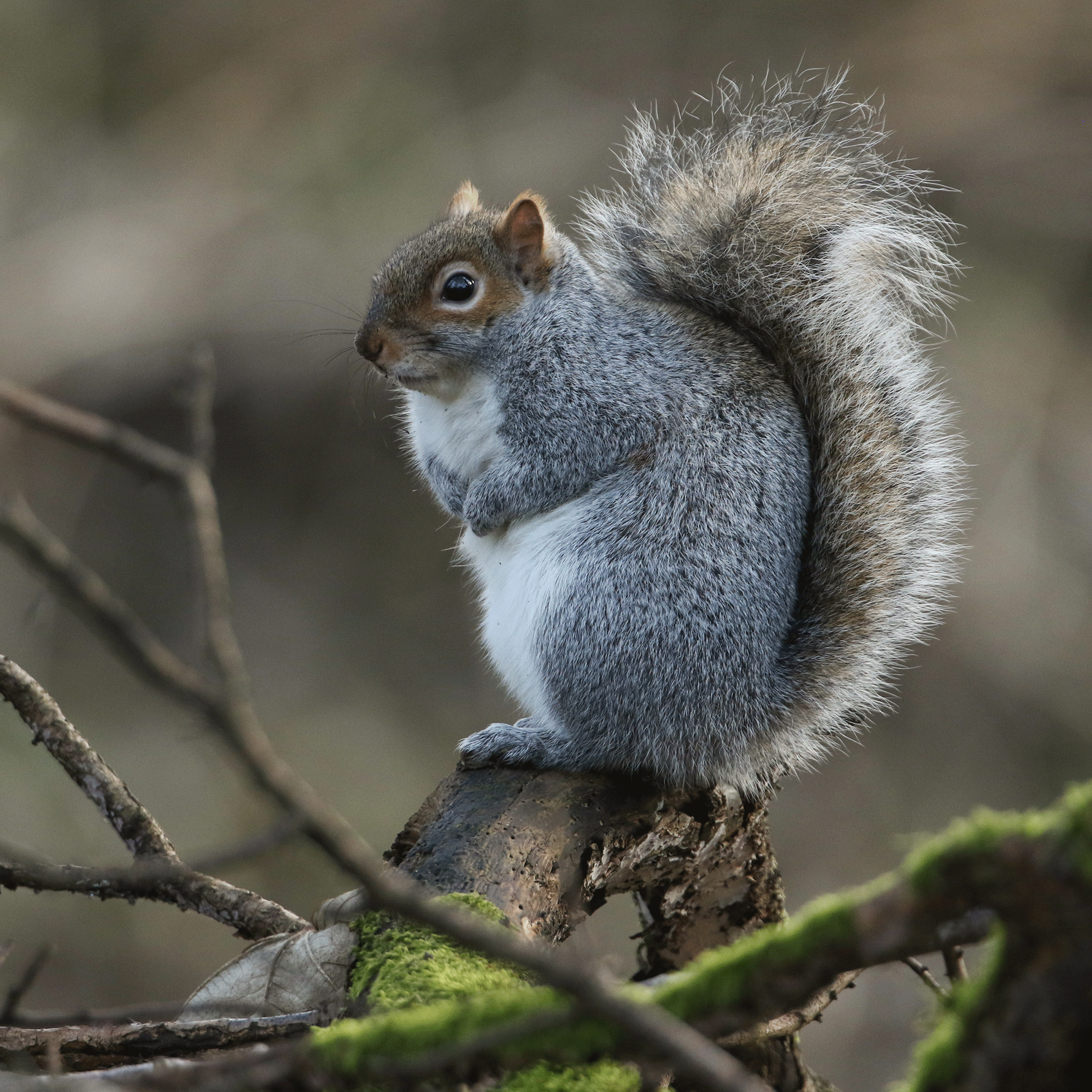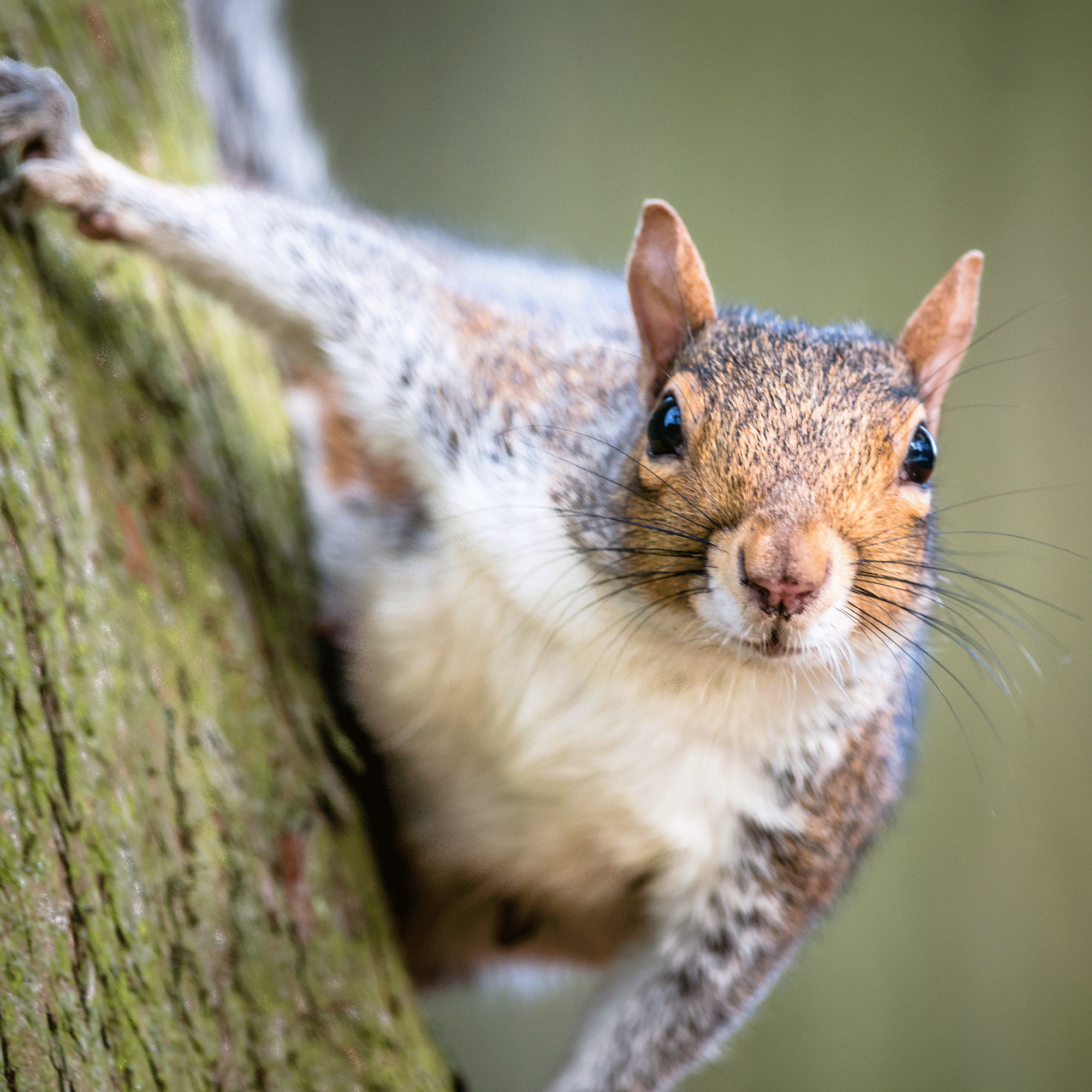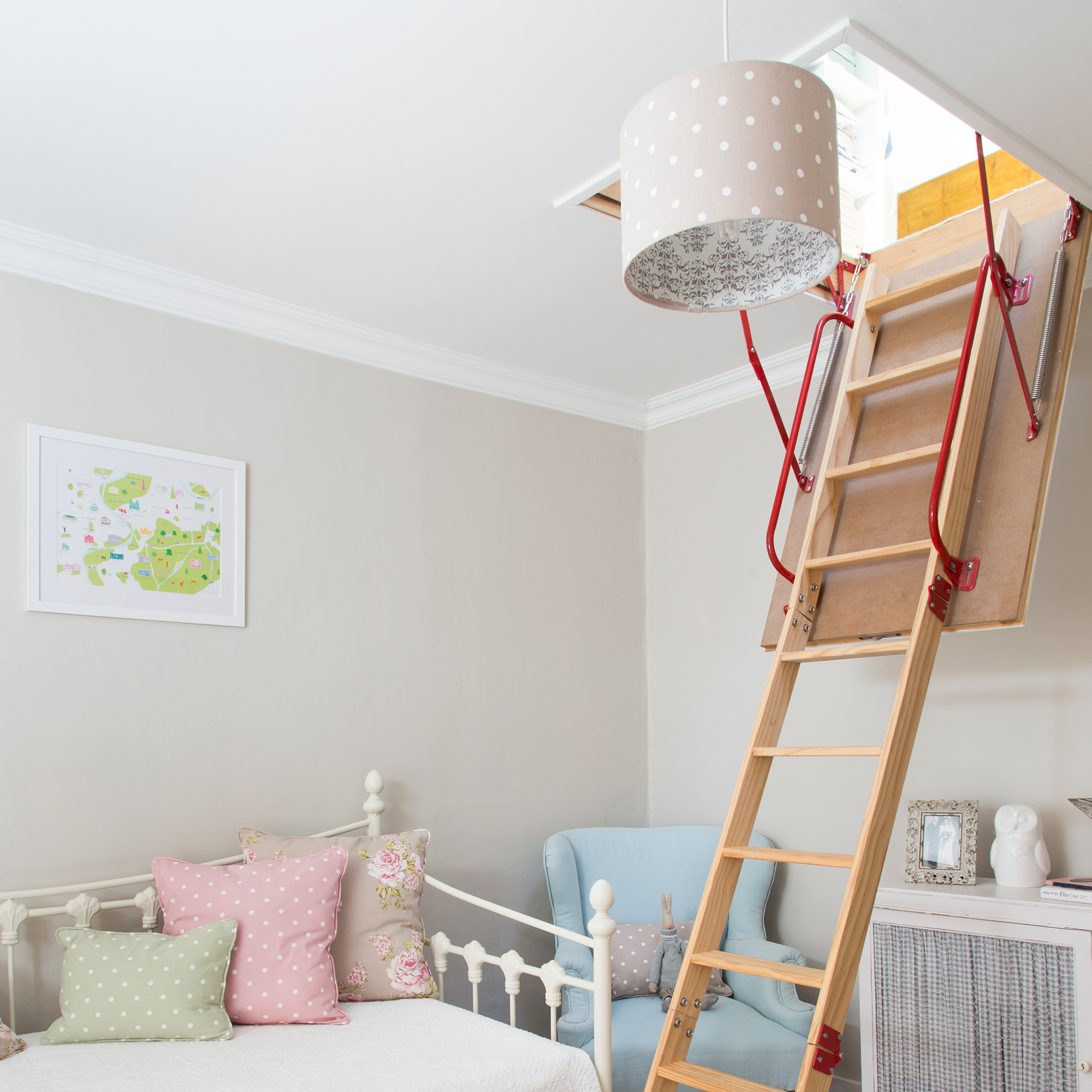How to get squirrels out of the loft - prevent irreparable damage to your home from these pesky creatures
Top tips to stop the squirrels from driving you nuts


It’s not every day you find yourself wondering how to get squirrels out of the loft. But if your Google search history is full of squirrel-related questions, we have a feeling that you’re having a pretty bad one.
Of course, researching how to stop loft condensation is annoying enough, but what do you do when condensation isn’t the only new addition to your attic? Believe it or not, countless homeowners across the country find themselves with squirrels in their lofts. But since you're here we imagine you are already all too aware of that fact.
How to get rid of squirrels in the loft
The tell-tale pitter-patter of their claws on the ceiling can be a nuisance, but what many people fail to realise is that the presence of squirrels in your loft can cause irreparable damage to your home and cost you thousands in loft or roof repair. So, it’s best to get a handle on them before they go too nuts.

How do you know if you have squirrels in your loft?
While getting rid of spiders in the house is fairly easy because you can see these eight-legged critters clear as day, the same can’t be said for squirrels hiding in the loft. And if you haven’t completed a loft conversion and only use your loft as an extra storage space, there’s a high chance that you won’t catch these squirrels in the act.
However, there are so many tell-tale signs that you have squirrels in your loft, so you’re bound to notice at least one of them:
You hear scratching on the ceiling: If you have squirrels in your loft, they’re probably going to move around a lot. And as they pitter-patter around with their sharp claws, you’re bound to hear them above your head. If you’ve had mice in the house before, it’ll probably sound fairly similar - but on a slightly louder scale.
There’s a funny smell: Unfortunately, squirrels aren’t toilet trained. And when they set up camp in your loft, they’re going to go to the toilet whenever and wherever they please. This means that you’ll probably smell the squirrels before you actually see them. If you can bypass the smell and get into the loft without feeling nauseous, you should also be able to spot squirrel droppings on the floor.
Sign up to our newsletter for style inspiration, real homes, project and garden advice and shopping know-how

You’ll see their nests: One of the best ways to determine if you have squirrels or not is to check your loft and look for nests. A squirrel nest is called a drey, and it’s normally made up of trees, twigs, leaves, and other organic matter. In a loft, though, they might use what’s available and rip apart your insulation and cardboard boxes.
There’s damage to your loft: Although squirrels look fairly cute, they can be extremely destructive when left to their own devices. In lofts, they will often nibble electrical wires, destroy your insulation, and chew on the main structure of your house. And while they’re only small creatures, this can cause a huge amount of damage. So, inspect your loft to spot any signs of harm.
You see them in your garden: There’s nothing wrong with welcoming wildlife into your garden, but if you see a high number of squirrels in your garden on a regular basis, there’s a high chance that you might have squirrels in your loft. Because of this, it’s a good idea to keep an eye out and see if you can spot where they might be getting into the house.
How to get squirrels out of the loft
Although pests in the home can be incredibly annoying, it’s important to understand that many animals are protected by rules and regulations. In fact, the government website outlines a very specific rule in regard to catching squirrels in your own home.
Phil Greenstock, Senior Surveyor at Shield Pest Control, explains, ‘Trapping of grey squirrels is not licensed and anyone can trap. Any persons using traps to live capture must be aware that it is a legal offence to release into the wild, and any grey squirrel which is live captured must be humanely dispatched. It is beneficial to use lethal traps as no pain and suffering is caused to the squirrel.’
‘The use of toxic baits is prohibited for the control of squirrels,’ he adds. However, if you suspect that you have squirrels in your loft, the best course of action is to consult a professional pest control company who can come and remove the squirrels in a safe and lawful way.
But that doesn’t mean that your work is done. Once the squirrels have been removed, you can then work on keeping the squirrels away and stopping any more from returning.

How to prevent squirrels from getting into your loft
There’s no point spending your hard-earned money to get squirrels out of your loft for them to move back in again as soon as they get the chance. Thankfully, there are so many ways to make sure that these squirrels stay out of your home for good - especially as they don’t pay rent!
1. Seal entry points
The first port of call is to ensure that a squirrel has no opportunity to get into the house. Although they’re larger than your average mouse or rat, squirrels can still get through small gaps. That’s why you should always inspect the exterior of your house as well as the interior of your loft to check for any potential entry points.
Of course, it may be that you need to keep vents or chimneys open for safety and air flow reasons, which is why it’s always a good idea to cover these entry points with mesh. This makes sure that the gaps can still stay fit for purpose without letting in any unwanted visitors.
Phil also suggests, ‘Ensure any rotting fascia and soffit boards are repaired or replaced as squirrels can gnaw the soft materials to gain access.’
2. Use strong scents
Squirrels are fairly sensitive to strong chemical smells, which means that you can use these to your advantage if you’re trying to keep squirrels out of the loft. And as they hate the smell of bleach, you can simply grab the bottle under your sink and get to work.
To keep squirrels at bay, pour a few drops of bleach onto some cotton balls and place them in your loft. This will immediately make your home less desirable to the little critters and hopefully keep them at bay.
However, it’s important to remember that if you use this method, you’ll need to refresh the cotton balls every week to keep the scent fresh.

3. Install sensor lights
One thing you might not know about squirrels is that they are diurnal, which means that they are most active during the day. But when the sun starts to set, they will make their way back to their nests and rest in the darkness.
So, if you want to keep squirrels out of your loft, you could try taking this darkness away from them. Don’t worry about keeping a light on all the time, though, as this will no doubt increase your energy bills. Instead, think about installing motion-sensor lights that will come on when they detect movement from the squirrel.
4. Take advantage of sound
Like many of us, squirrels like the peace and quiet. Because of this, they’ll rarely set up camp somewhere where there’s a lot of noise. And making your loft less desirable to these animals is the best way to keep them at bay.
Of course, there are many different ways to use noise to your advantage. You could place a radio near the old squirrel nest to stop any new ones from taking up residence, or you could use a specific ultrasonic pest-repellent device.
This will not harm the squirrels but should keep them out of your loft.

FAQs
How do you get rid of a squirrel in your loft?
Although it’s possible to trap squirrels you find in your loft, the rules and regulations around squirrels mean that you will also need to kill them - as it’s unlawful to release them back into the wild.
Of course, this isn’t something many people want to do, which is why it’s always suggested that you should use the services of a professional pest control company.
Once they’ve got rid of the squirrels in your loft, you can then focus on keeping any more potential pests from entering your home.
What deters squirrels from lofts?
There are so many things that deter squirrels from your loft, including loud noises, bright lights, and even certain scents.
In most cases, it’s best to employ all of these deterrents to ensure that you don’t get any squirrels in the house. This will give you the best chance of keeping squirrels at bay and protecting your home from squirrels who want to chew your wires and take chunks out of your insulation.
So, focus on placing cotton balls with bleach around the loft, seal up any potential entry points with wire mesh, and then employ the use of motion-sensor lights and sound repellers to deter squirrels once and for all.

Lauren Bradbury has been the Content Editor for the House Manual section since January 2025 but worked with the team as a freelancer for a year and a half before that. She graduated with a Bachelor’s degree in English and Creative Writing from the University of Chichester in 2016. Then, she dipped her toe into the world of content writing, primarily focusing on home content. After years of agency work, she decided to take the plunge and become a full-time freelancer for online publications, including Real Homes and Ideal Home, before taking on this permanent role. Now, she spends her days searching for the best decluttering and cleaning hacks and creating handy how-to guides for homeowners and renters alike, as well as testing vacuums as part of her role as the Ideal Home Certified Expert in Training on Vacuums, having spent over 110 hours testing different vacuum models to date!